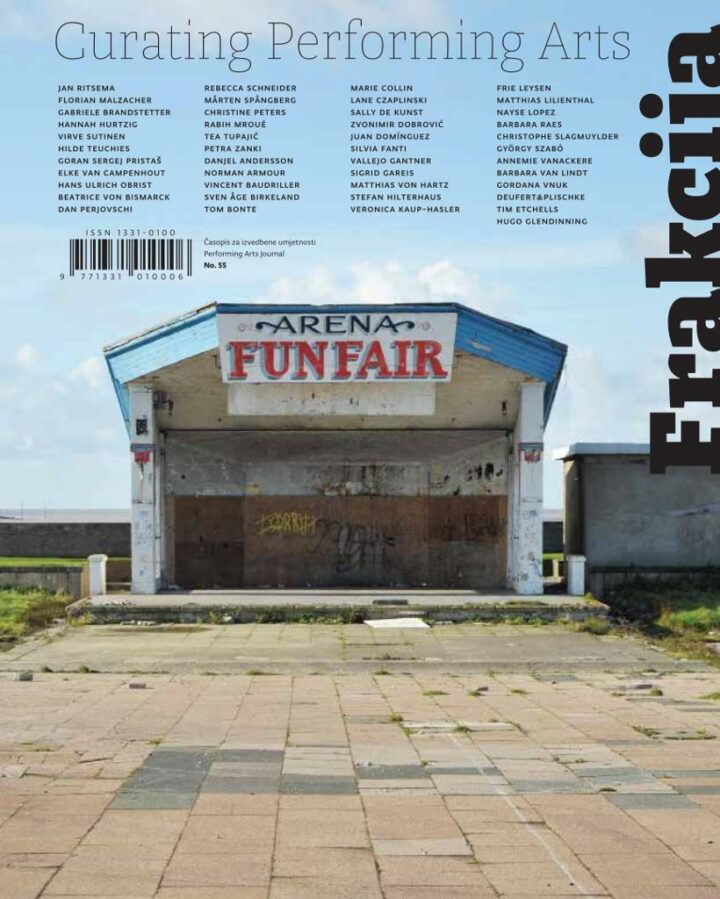In the middle of a rather crowded space, on a stage cut off from the auditorium by the iron curtain. Squeezed in between others at a table, no way to see everything, always having to turn your neck to look at the other full tables, at the door on the opposite side where some kind of film noir action seems to be taking place, or at the small strip in front of a wall, which serves as a wide screen stage for dancing and cursing and projecting. Voices from radios, and voices from performers at the tables, almost whispering as if not to disturb anyone, barely audible across the tables, accompanied by some photocopies, but there is no time to really read or even understand them. Memories are Made of This… performance notes, the title of this work by BADco. from 2006, quotes a Dean Martin song, but for the moment it is uncertain if it is not the other way around: We are in the middle of a memory machine – but does it produce memories or is it fuelled by them? What then does it produce? More memories? As with the famous Wunderblock – a waxed blackboard for children to write on, used by Freud as a metaphor for human memory – you can no longer really decipher what is beneath the permanently re-written first layer. But you also cannot ignore it.
Too much
There are at least two kinds of too much. One that annoys by exaggeration, that frustrates because you are never able to cope, that feeds you until you cannot swallow any more. Too much of ‘anything goes’, too much gluttony and mindless consumption. And there is too much as a thoughtful offer of possibilities. Not just accumulation but too much that offers choices, that empowers, that frees even when it is overwhelming. Too much that opens a field of thinking, associating, experiencing. Too much that takes its opposite seriously. Too much as a gesture of invitation and generosity.
Tasks for guests and hosts
It is this gesture of sometimes overburdening generosity that characterises many of BADco.’s recent performances. And even though this attitude can be read as the continuation of a specific modernist theatre tradition aiming to lay out a wide semiotic field by producing an excess of signifiers, this is not the full truth. While the work of their predecessors (most famously the New York neo-avant-garde antagonists the Wooster group and Richard Foreman, or in Europe – even though very different in style – the young Jan Fabre, Heiner Müller or Romeo Castellucci, to name a few) has its roots very much in an urge to liberate theatre from the primacy of text, from limitations by causal, linear narrations, by psychology, etc., BADco. takes it for granted that this prominent fight from the 1980s and early 1990s was won long ago. Not only do they use the booty of these struggles in whatever way they need to – they also add to it the attainments of the parallel, often ignored story of the arts and theatre in (South-) East Europe, and especially the former Yugoslavia.
